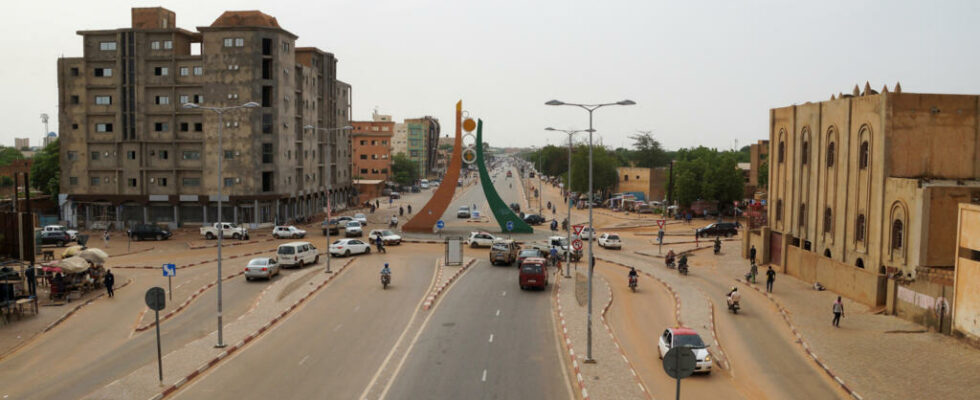This is a first in Niger: nine former officials of the Mohamed Bazoum regime overthrown by a putsch in July 2023 were stripped of their nationality by decree of the head of the junta, Thursday October 10. Deciphering a decision that raises several questions.
2 mins
The ax fell Thursday October 10 with a decree from the general Abdourahamane Tianithe head of the CNSP, the military junta in power in Niger : nine relatives of the former Nigerien president Mohamed Bazoum overthrown by a coup d’état on July 26, 2023 were provisionally stripped of their nationality after their name was included in a file listing people or entities ” involved in acts of terrorism or any other offenses affecting the strategic interests of the nation “.
All are suspected of intelligence with a foreign power and conspiracy against state authority. Among these personalities are, among others, General Abou Tarka, of the High Authority for the Consolidation of Peace, or Rhissa ag Boula, who held the position of security advisor to President Bazoum.
Also readNiger: relatives of ex-president Mohamed Bazoum stripped of their nationality
While Niamey has ratified international texts such as the Universal Declaration of Human Rights which prohibit making a person stateless – “ Everyone has the right to a nationality “, proclaims for example this one –, “ how can a Nigerian then be stripped of his nationality if he does not have any other? », asks a lawyer.
A measure intended to silence dissenting voices
While the Niger government document also specifies that this is a provisional forfeiture of nationality – it would only become definitive in the event of the individuals concerned being sentenced to at least five years in prison –, one of the latter believes that this measure only formalizes a state of affairs. “ We have already lost our country and our nationality since we cannot return home, nor obtain any Nigerian administrative document. », he comments.
In the opinion of several observers, this decision is nothing other than a way of silencing any dissenting voice. For one of them, it would also be a symbolic measure intended to discredit those it targets. Discordant voices are therefore no longer seen as those of political opponents, but as coming from traitors to the homeland.
A serious act due to the civil and political rights attached to nationality
The analysis of Dr Adamou Issoufou, professor of public law at Cheick Anta Diop University in Dakar
